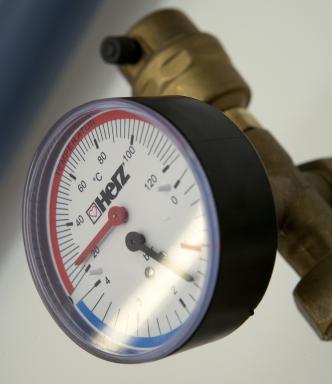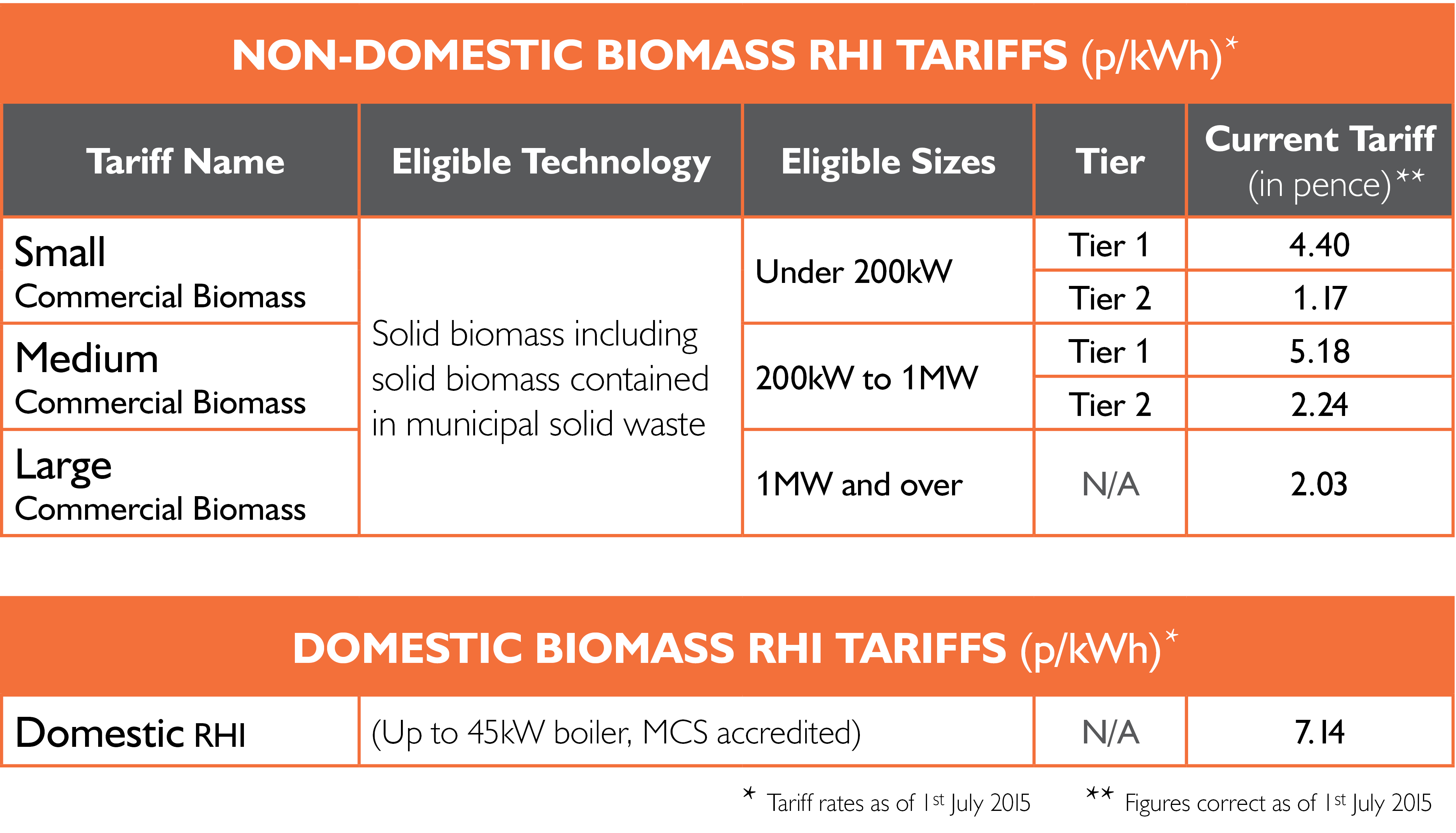27/05/2015
The Nitty-Gritty on the RHI

*** NOTE: THIS IS NOW OUT DATED INFORMATION ***
The Renewable Heat Incentive (RHI) allows those who invest in renewable heating technology, and are eligible, to earn a monetary payback. It was established by the British government to assist the country to reach the carbon reduction targets it committed to in accordance with EU legislation: 15% of all energy consumed will come from renewable technologies, such as biomass, by 2020.
The financial return is based on the heat that is generated using such technology in conjunction with a sustainable fuel source and payments are received per kilowatt hour of heat produced and used – like biomass boilers and wood fuel.
The Department of Energy and Climate Change (DECC) maintains the RHI scheme. In order to do this it holds numerous consultations throughout the year on the progression of the RHI.
The Non-Domestic RHI scheme was introduced in 2011 and, following consultations, reviews & amendments, the Domestic RHI followed in April 2014. The deadline for registering DOMESTIC legacy projects – those commissioned after July 15th 2009 but before the official launch of the RHI – passed in April 2015.
The current range of technologies on the eligible list are:
NON-DOMESTIC
• Solid biomass
• Biogas below 200kWth
• Biogas 200kWth and above*
• Ground and water source heat pumps
• Air to water heat pumps*
• Geothermal
• Solar collectors
• Energy from waste
• CHP generating heat from biomass, biogas or waste in combination with any other energy source *
(*commissioned after 3rd December 2013)
DOMESTIC
• Biomass (only) boilers and biomass pellet stoves
• Air source and ground source heat pumps (not water source)
• Flat plate and evacuated tube solar thermal panels
Current Tariffs

*The Tier 1 rate will be paid for heat produced up to 15% of the boiler’s nominal annual capacity (e.g. Tier 1 for a 150kW boiler is 150kW x 8760 hours/annum x 15% = 197,000kWh). Tier 2 rate is paid on heat produced above this rate. There is a single tier rate for biomass systems of 1,000kW (1MW) and over.
Non-Domestic (Commercial) RHI Scheme Details for Biomass Installations
Details
1. Introduction date: 2011
2. Expected Return on Capital Investment: 12-40%
3. Payments will be paid quarterly for boilers under 1MW and monthly on larger systems
4. Payments will be paid for 20 years from date of accreditation
5. Payments will be index linked (increased annually by RPI)
Rural Energy Ltd can provide advice and illustrations of exactly what benefit you can obtain from your particular heating system plans.
Eligibility
1. The heat produced must be utilised for an eligible purpose
2. Only installations for non-domestic buildings are eligible for the Non-Domestic RHI
3. The system must have been commissioned after 15th July 2009 and the client must not have received any capital grant – or be willing to repay it
4. Only boilers ‘specifically designed and installed to burn biomass’ will be supported
5. The heat produced by the biomass boiler must be metered and must be distinguishable from heat produced by any peak load fossil fuel boiler
6. The biomass boiler will need to be serviced according to the manufacturer’s recommendations
7. The biomass boiler will need to meet Ofgem requirements for emissions with a certificate of pass from the manufacturer (RHI emissions certificate)
8. Records of fuel used must be kept and all fuel must meet the RHI sustainability criteria (see our Wood Fuel page and related FAQs for more details on this and the Biomass Suppliers List)
Application process
1. Applications must be made by the owner or by a representative on their behalf
2. Rural Energy can offer a service to provide clients with all the relevant data and drawings required for the application
For more information or assistance with your RHI application, please contact Rural Energy’s Proposal Engineer & RHI Coordinator on 0203 189 0654
- Agriculture (10)
- Awards (5)
- Carbon Reduction (26)
- Commercial (13)
- Country Estates (4)
- CSR (3)
- Design (4)
- District Heating (2)
- Domestic (2)
- Education & Healthcare (2)
- Events (11)
- Finance (3)
- Herz (9)
- Horticulture (3)
- Industrial (6)
- Installer Network (1)
- Poultry (4)
- Project Management (1)
- Public Sector (1)
- Renewable Heat Incentive (23)
- Service & Maintenance (3)
- Training (2)
- Warehouse (1)
- Wood Fuel (13)
- March 2018 (1)
- February 2018 (1)
- January 2018 (1)
- September 2017 (2)
- May 2016 (1)
- March 2016 (1)
- February 2016 (1)
- January 2016 (3)
- December 2015 (2)
- November 2015 (1)
- October 2015 (2)
- August 2015 (2)
- July 2015 (1)
- May 2015 (2)
- April 2015 (1)
- March 2015 (2)
- February 2015 (1)
- January 2015 (1)
- December 2014 (2)
- November 2014 (1)
- October 2014 (1)
- August 2014 (2)
- July 2014 (2)
- June 2014 (1)
- May 2014 (1)
- April 2014 (3)
- March 2014 (1)
- February 2014 (1)
- January 2014 (1)
- December 2013 (1)



